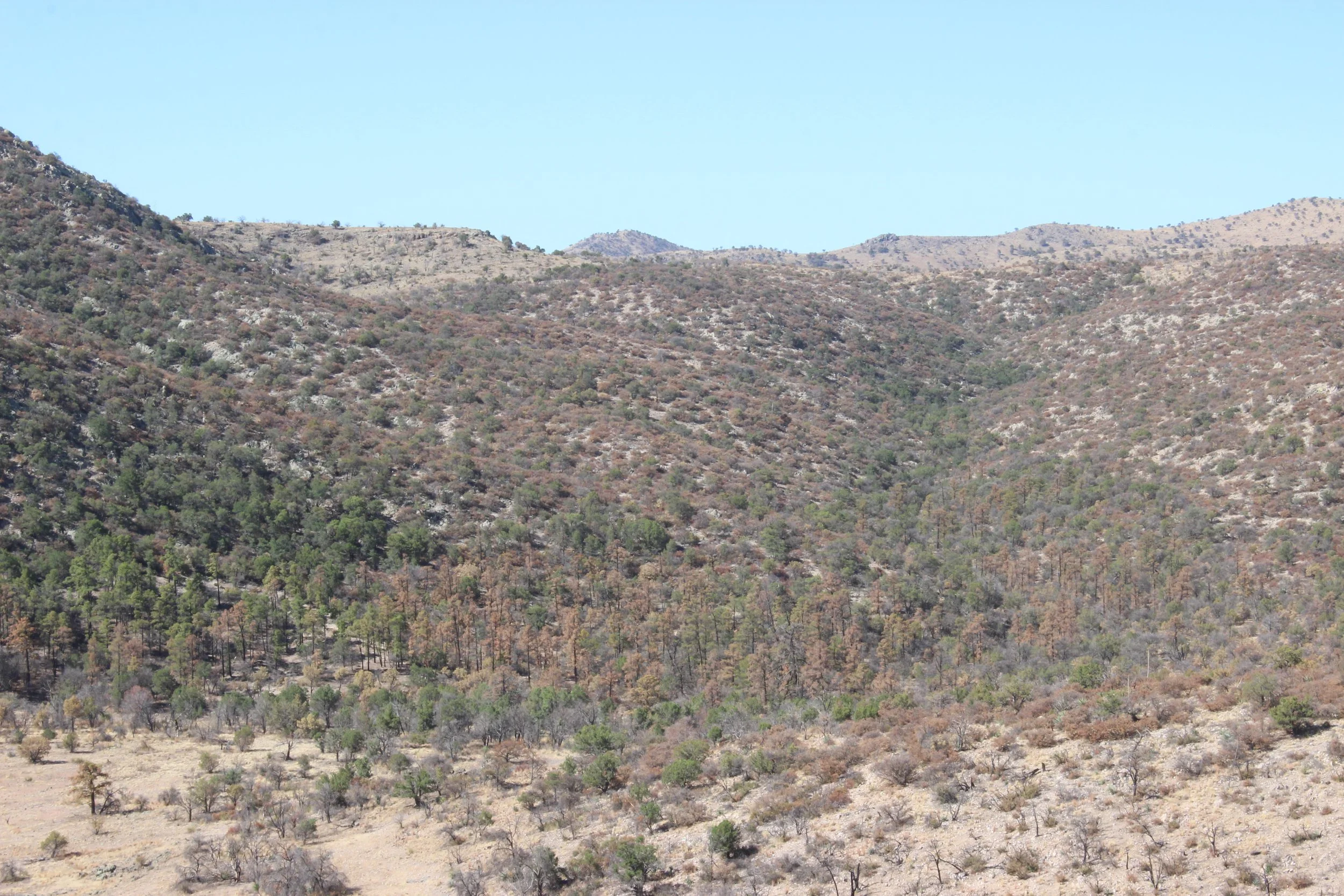
ecophyslab people
-
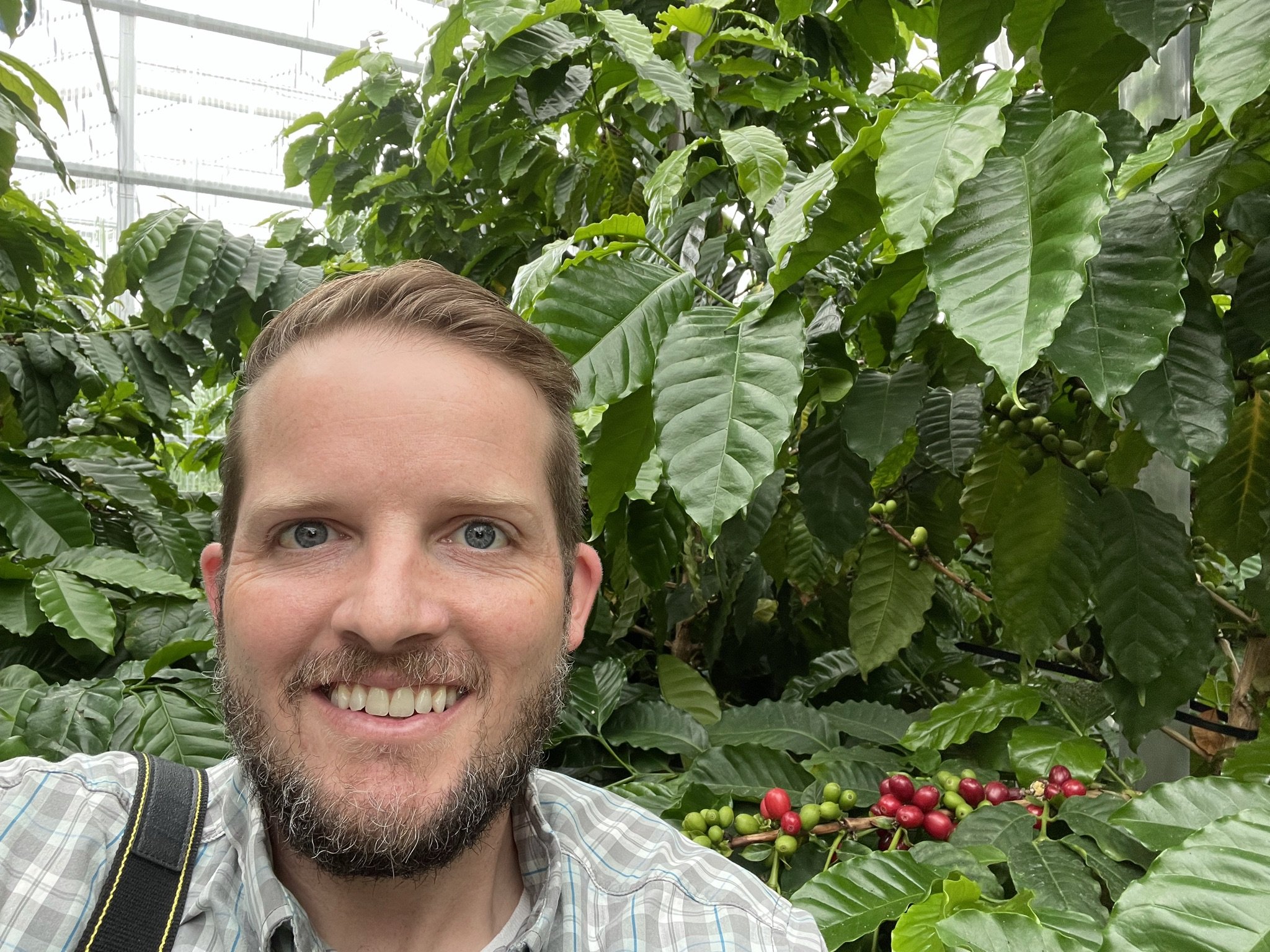
Dr. William (Bill) Hammond
(he/him)
Assistant Professor of Plant Ecophysiology
Dr. Hammond is a plant ecophysiologist and global change ecologist. Broadly, he is interested in how plant vascular systems react to extreme environmental conditions—especially regarding their function, dysfunction, and the limits of survival. Visit the research and publications pages for more information about current research projects and published work.
Education:
BS in Biology, University of Central Oklahoma
PhD in Plant Biology, Oklahoma State University
-
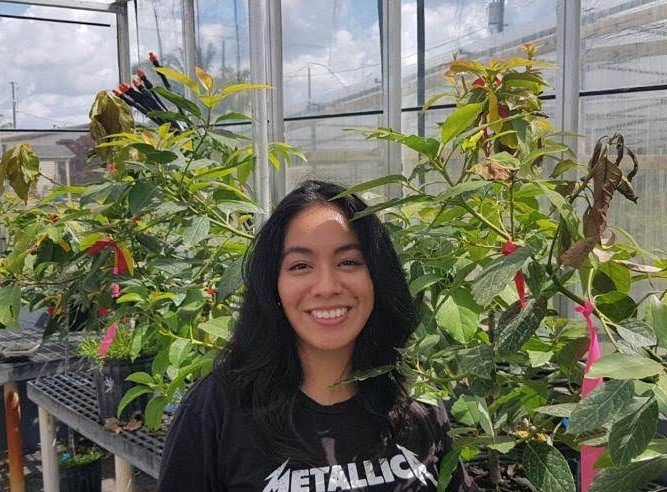
Dr. Raiza Castillo
(she/her)
Biological Scientist III
Lab Manager
Raiza investigated the anatomical and physiological responses of avocados to laurel wilt diseases during her PhD. Her recent research focuses on linking plant physiology and anatomy with the plant hyperspectral reflectance to sense plant water status. Raiza organizes, coordinates, and manages day-to-day activities of the lab, is an active mentor, and developer of lab research directions.
-
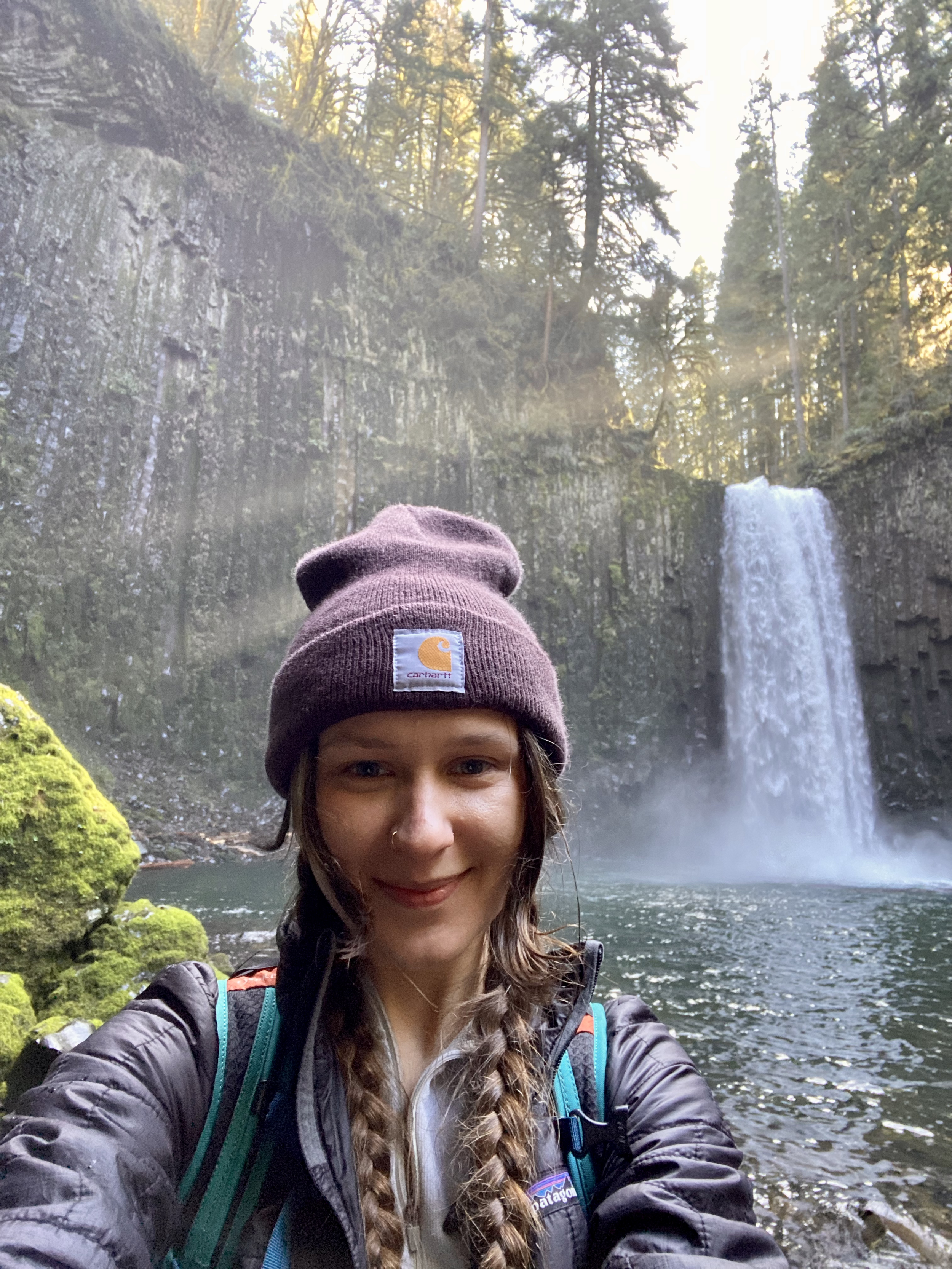
Medelin Kant
(she/her)
PhD Candidate — School of Natural Resources and Environment
Medelin cares about Earth’s forests and is interested in studying how climate change impacts tree ecophysiology. Her dissertation research focuses on pine tree vulnerability to hotter-drought stress. She aims to reveal physiological thresholds and mechanisms of both mortality and potential climate acclimation to hotter droughts across tree ontogeny and the genus Pinus.
Education:
BS in Biological Sciences, Oklahoma State University
MS in Forest Ecosystems and Society, Oregon State University
-
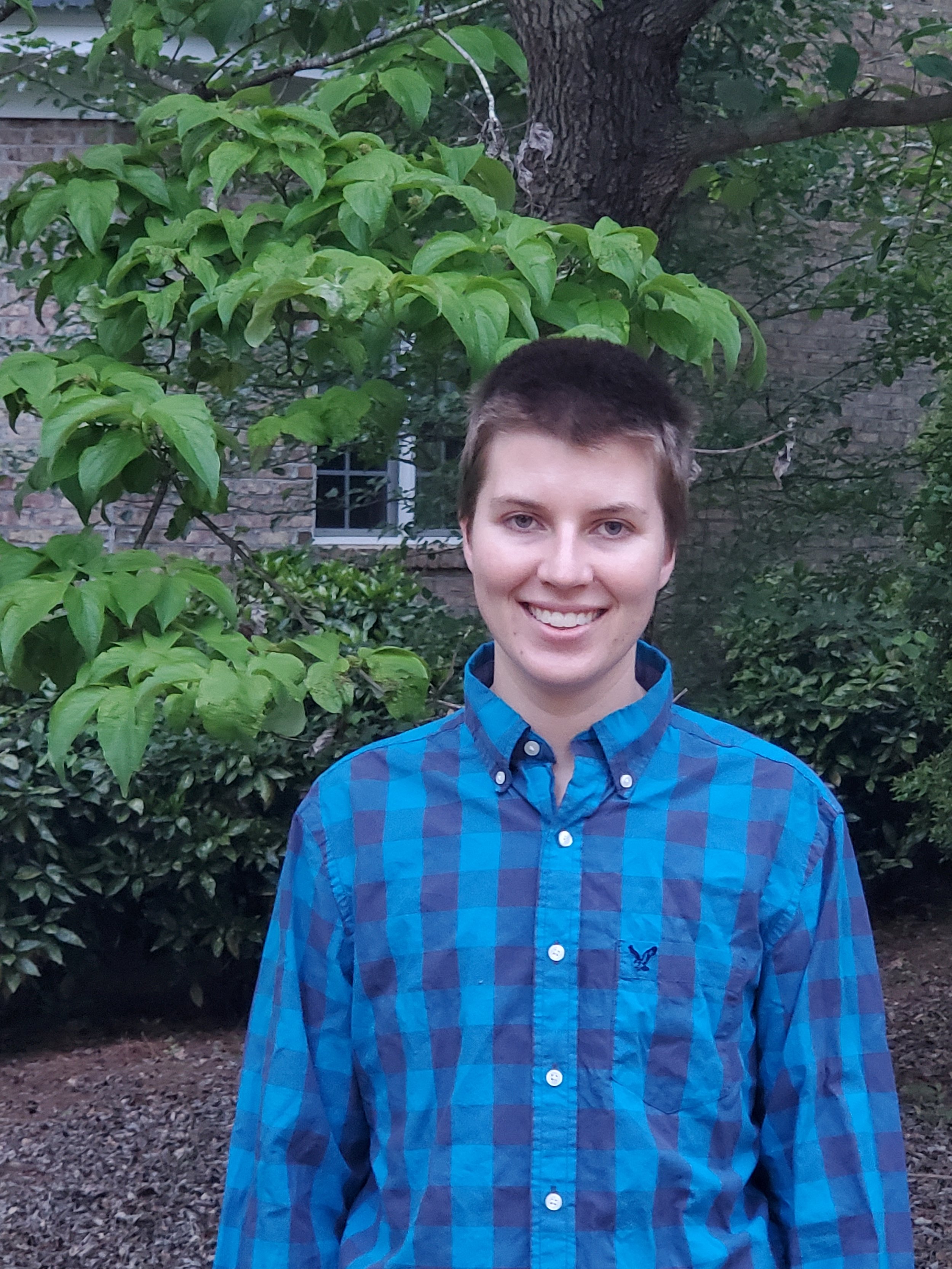
Alston Lippert
(they/them)
PhD Candidate — Agronomy
Alston is interested in a lot of things, including how climate change is affecting and will affect native plants in the Southeastern United States. They are interested in testing some of the assumptions made about how plants react to changing environments, examining how drought affects native herbaceous plants, and anything else that catches their eye. Alston finished a two year AmeriCorps internship with The Nature Conservancy in south Florida, where they worked extensively in a native plant nursery. When Alston isn’t studying, they enjoy rowing and being outdoors, you can generally find them near some water.
-
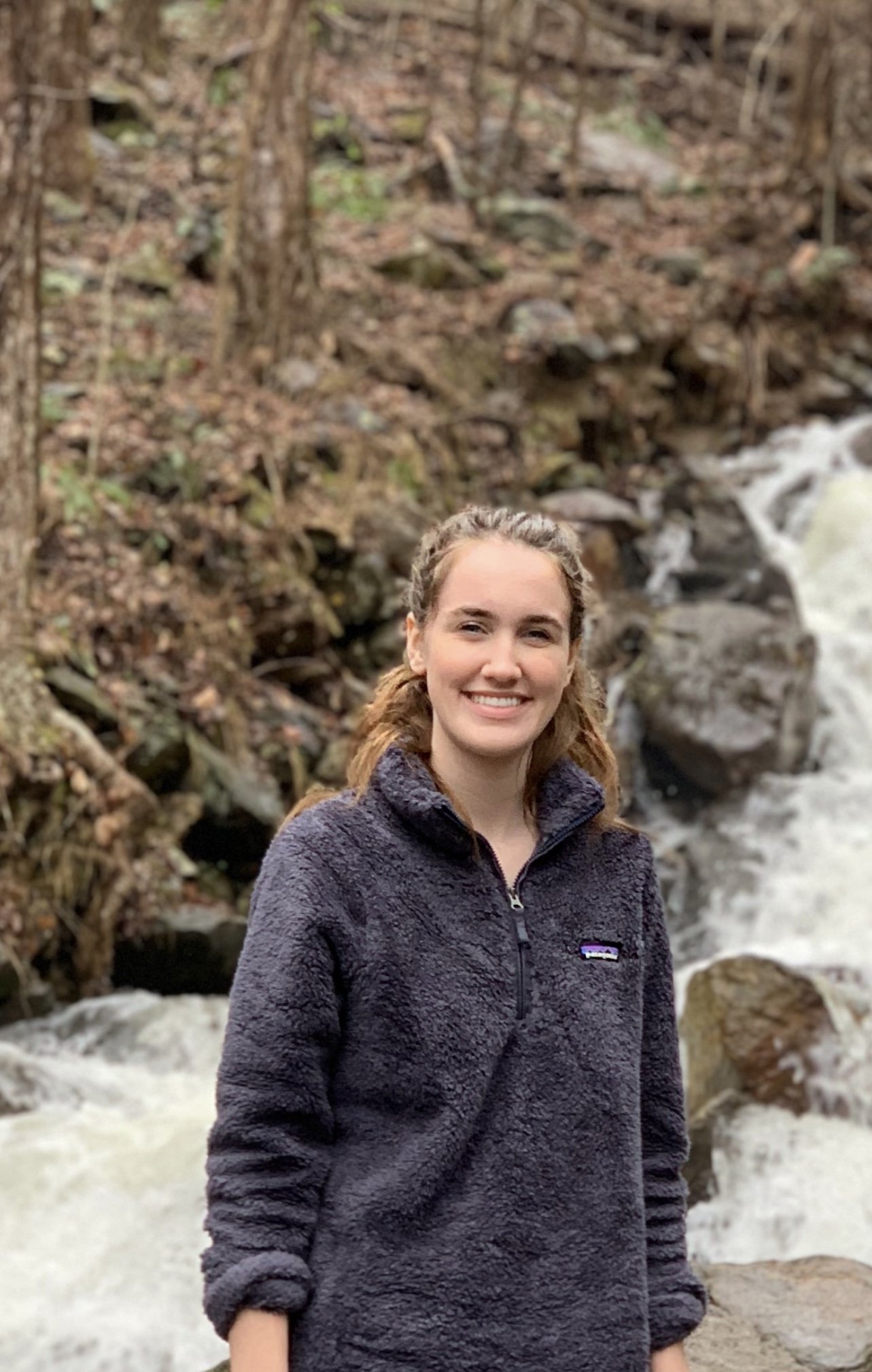
Emily Perry
(she/her)
PhD Student - School of Natural Resources and Environment
Emily began working in the lab as an undergraduate, studying the effects of compound drought-heatwave events on pine tree anatomy and physiology. After earning her Bachelor of Science in Plant Science with a specialization in Plant Breeding and Genetics, she continued in the lab as a research assistant on a USDA rapid-response project investigating the impacts of heatwaves on silage corn in Florida. Now pursuing her PhD at UF, Emily is focused on a pine tree heatwave study and is in the process of developing her dissertation proposal. She plans to explore how climate change affects the genetics, anatomy, and physiology of mustard greens and pine trees, aiming to better understand the cellular mechanisms driving evolutionary differences between woody and herbaceous responses.
Education:
BS in Plant Science with a specialization in Plant Breeding and Genetics, University of Florida
-

María Cuervo Gómez
(she/her)
PhD Student - Biology
María’s journey with plants began with her undergraduate research work, which focused on tolerance to heat and acclimation to hotter environments in urban trees in Bogotá, Colombia. Her research interests expanded during her PhD studies, where she aims to understand the impacts of intraspecific whole-genome duplications on plant functioning and tolerance to stressors such as heat and drought, using Arabidopsis thaliana as the model system, as part of the Polyploidy Integration and Innovation Institute – PI3. María is advised by Pam Soltis in Biology, and co-advised by Bill Hammond in the ecophyslab.
Education:
BS in Biology, Universidad Nacional de Colombia.
ResearchGate: https://www.researchgate.net/profile/Maria-Cuervo-Gomez
Polyploidy Integration and Innovation Institute: https://www.pi3biology.org/ -
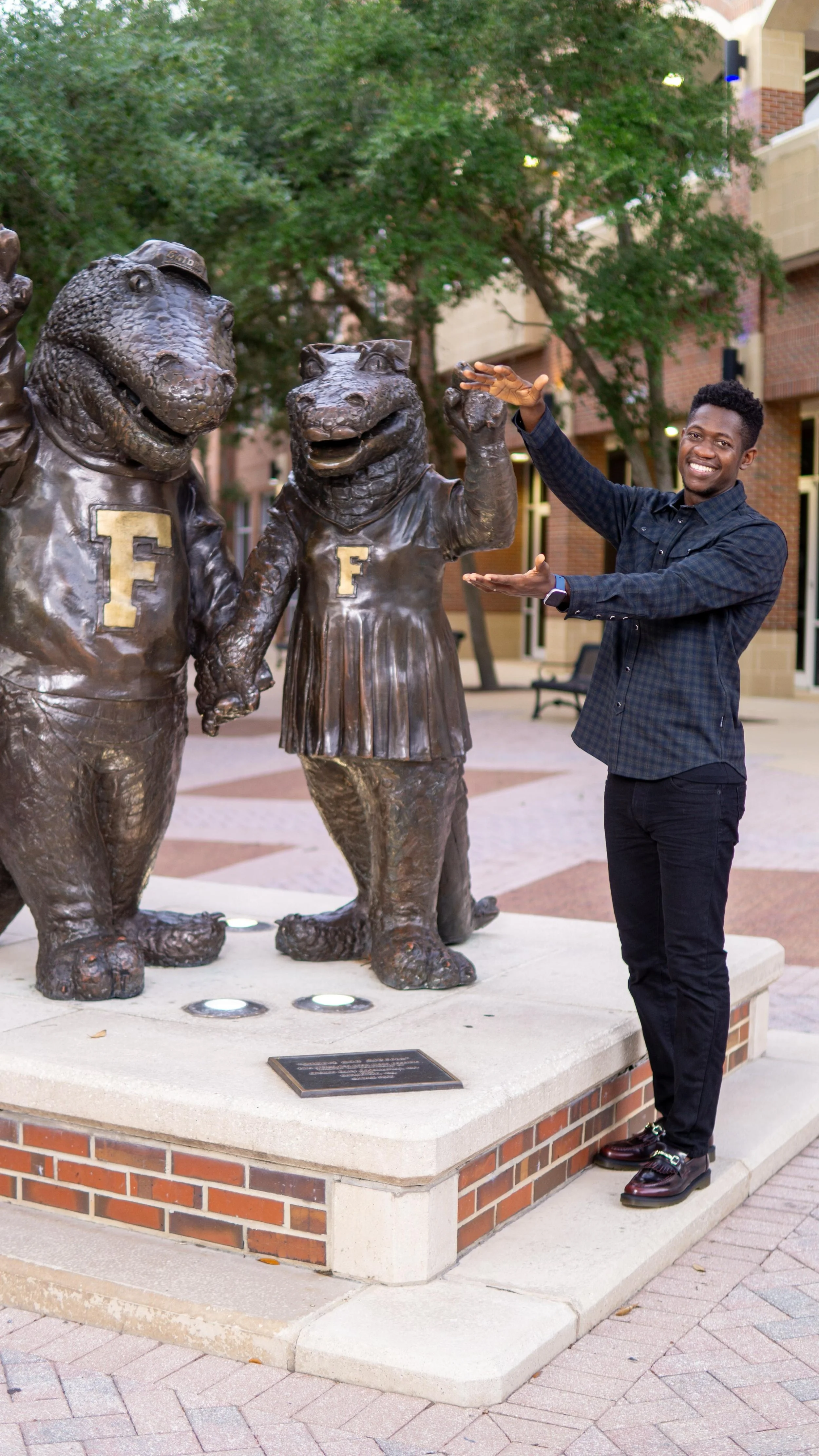
Jeftey Saint Fleur (Jeff)
(he/him)
Master’s Student - Agronomy
Jeftey is an Agricultural Engineer from Haiti with a background in Natural Resources and Environment. His undergraduate thesis focused on cadmium uptake by cocoa trees, investigating its accumulation in soils and beans as well as potential mitigation strategies. Currently, he is interested in understanding drought-induced forest and tree mortality in the context of global warming. He aims to apply Remote Sensing and GIS to analyze both physiological and ecological patterns and to predict tree mortality. Besides academic work, Jeftey enjoys playing and watching soccer, and spending time with his family.
Education:
Bachelor of Science in Agricultural Engineering - Natural Resources and Environment, Faculty of Agronomy and Veterinary Medicine, State University of Haiti
LinkedIn Profile: www.linkedin.com/in/j-saintfleur
-
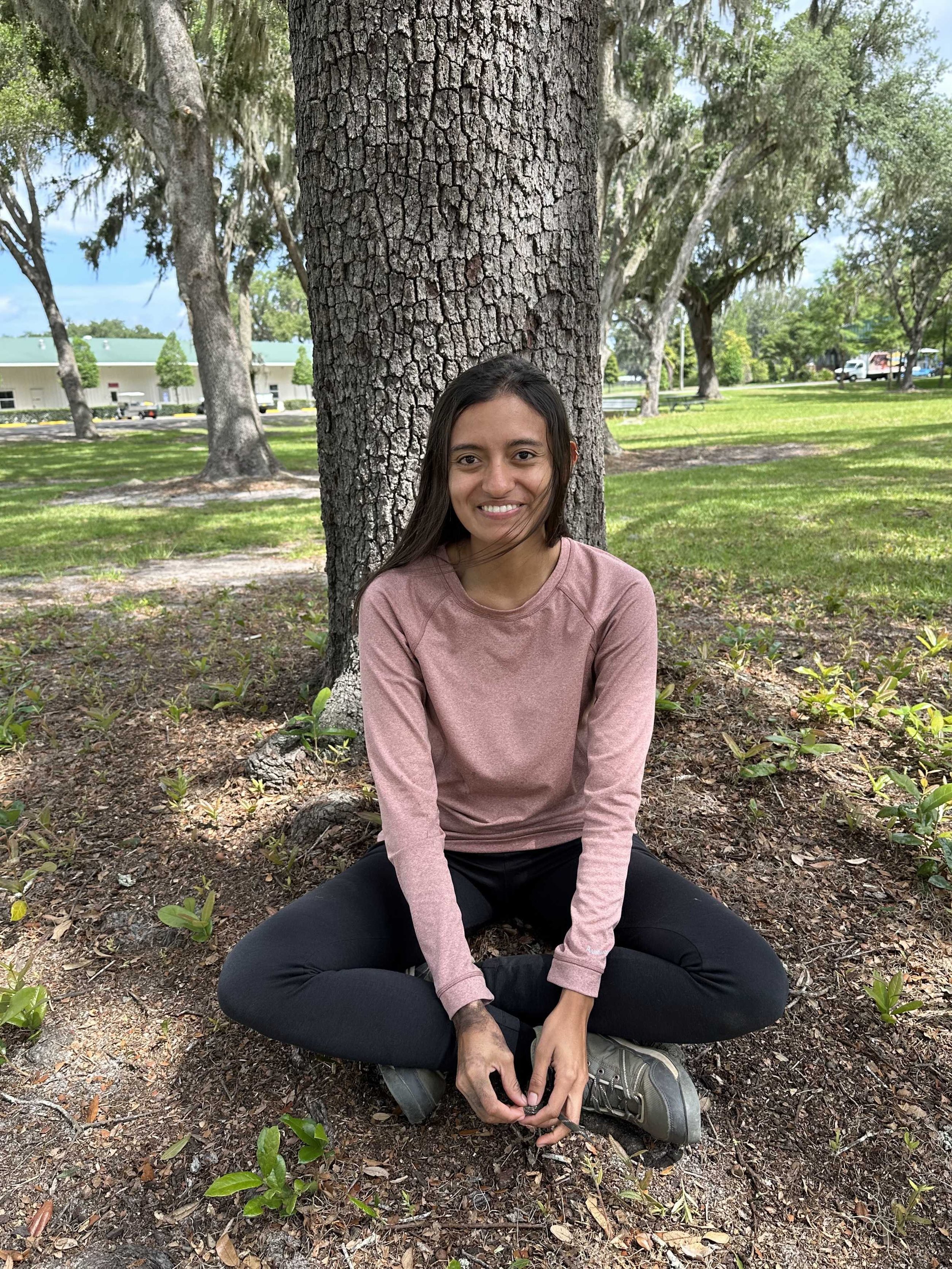
Laura Torres
(she/her)
Master’s Student - Agronomy
Laura is an agronomist from Colombia. She is interested in understanding how plants adapt and the ways they cope with stress. Her previous work experiences are based on the study of the physiological and biochemical responses of potatoes plants to water stress. During her master’s project she aims to comprehend the effect of drought on peanut plants, identifying a range of drought-resilient growth and survival traits, and how this can affect aflatoxin contamination.
Education:
BS in Agronomy, Universidad Nacional de Colombia.
-
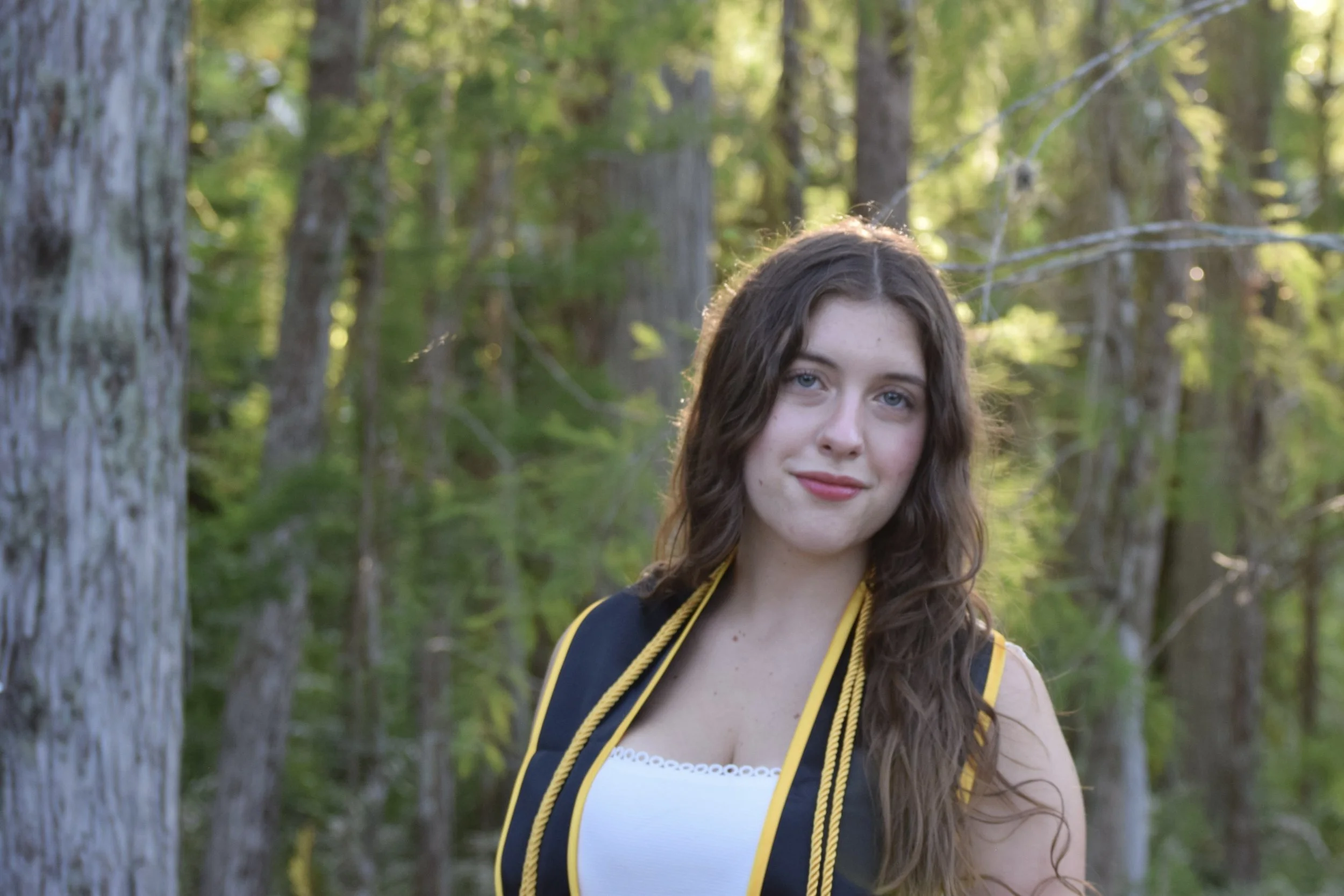
Christy Walton
(she/her)
Master’s student - School of Natural Resources and Environment
Christy’s research interests are rooted in understanding the effects of climate change on plant function and overall health. Her MS thesis in Interdisciplinary Ecology will focus on Hurricane Helene’s effects on pine tree forests, including hydraulic function and disease risk. Her experience from her undergraduate career includes research in soil science, aquatic biogeochemistry, and mangroves. She is interested in an interdisciplinary approach to explore several facets of plant science including microbiology and the social-ecological system.
Education:
BS in Biology, University of Central Florida
-
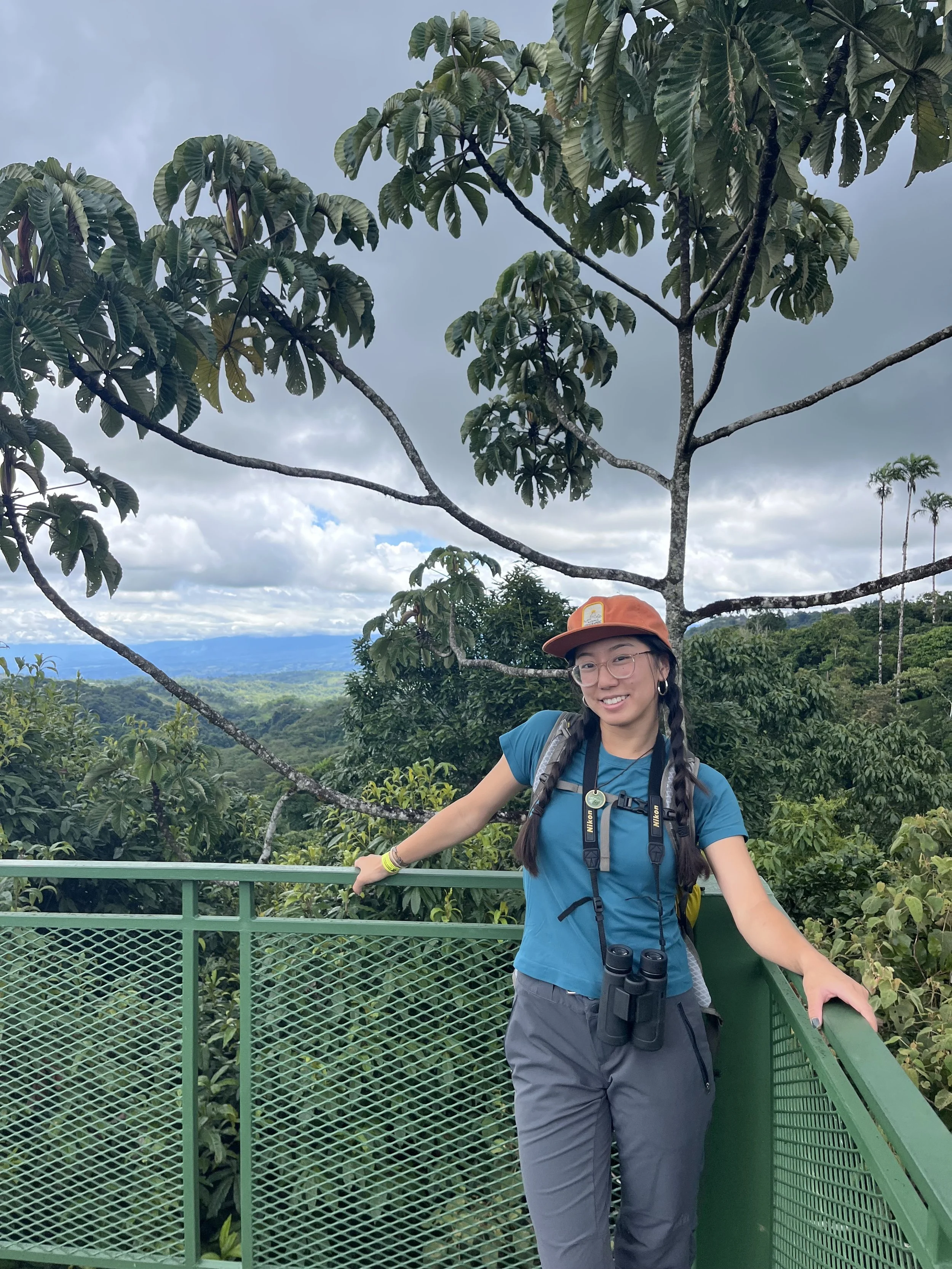
Lee Gallivan
(she/her)
Undergraduate Researcher
Lee is a fourth-year undergraduate student in the Department of Wildlife Ecology and Conservation. As a research assistant, she primarily assists with the Brassica salinity tolerance research project in the lab, as well as other various projects as needed. She aspires to continue researching human-ecosystem dynamics, with a focus on data science.
Education:
BS In Wildlife Ecology and Conservation (in progress)
-

Natalie Mercer
(she/her)
Undergraduate Researcher
Natalie is interested in learning how different plants react to environmental stressors such as heat and drought and what mechanisms plants have to combat said stressors. Within the ecophyslab, Natalie is a lab assistant helping with the research of Pine tree vulnerability under drought stress.
Education:
BS in Plant Science (in progress)
-

Joseph Woodruff
(he/him)
Undergraduate Researcher
Joe is an undergraduate Plant Science student, with a focus in breeding and genetics. He is particularly interested in understanding tolerance to climate stresses and improving those traits in agronomic crops. Currently he is studying effects of heat and drought in pines, and hopes to enter a research-focused career.
Education:
BS in Plant Science (in progress)
ecophyslab visiting scholars
-
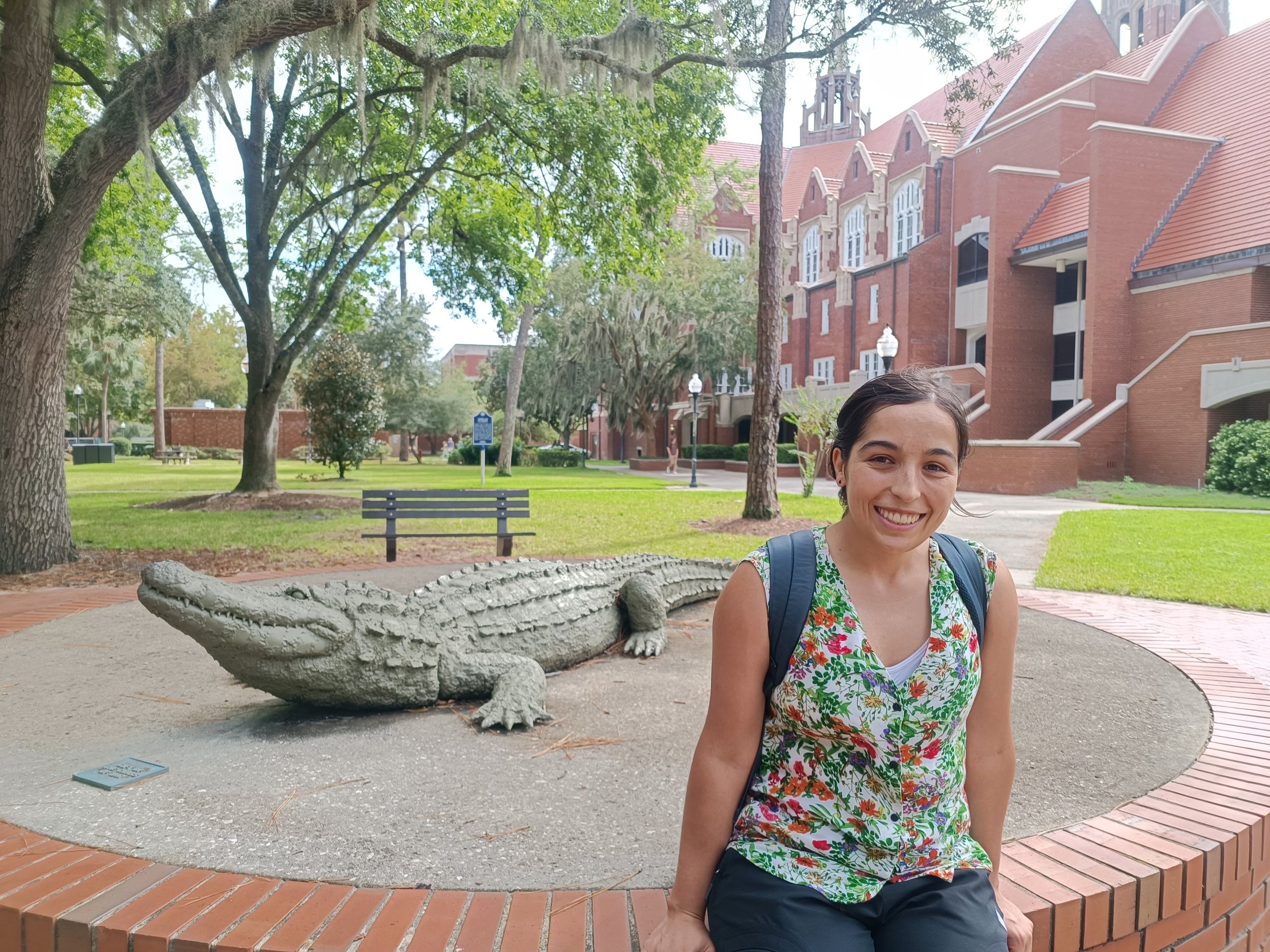
Laura Cano
(she/her)
Fulbright Scholar, 2023
Laura is a PhD student from Colombia, currently a visiting student researcher at Ecophyslab. Her primary interests lie in understanding how plants respond to the environment, their roles in ecosystems, and how this knowledge can be applied to ecosystem management. During her undergraduate and master’s studies, she focused on the interaction of trees with soil nutrient availability and ecohydrological processes, respectively. For her doctoral dissertation, she is concentrated on understanding the impacts of multilevel drought on the risk of mortality and the decline in the growth of native tree species from the Tropical Andean Forest. Additionally, she is interested in studying the functional mechanisms that explain the vulnerability of trees to drought.
Education: BS in Biology, Universidad de Antioquia. MS in Environment and Development, Universidad Nacional de Colombia. PhD student in Environmental Engineer, Universidad de Antioquia.
Education:
BS in Biology, Universidad de Antioquia. MS in Environment and Development, Universidad Nacional de Colombia.
PhD - School of Environment, Universidad de Antioquia, Colombia (in progress)
-
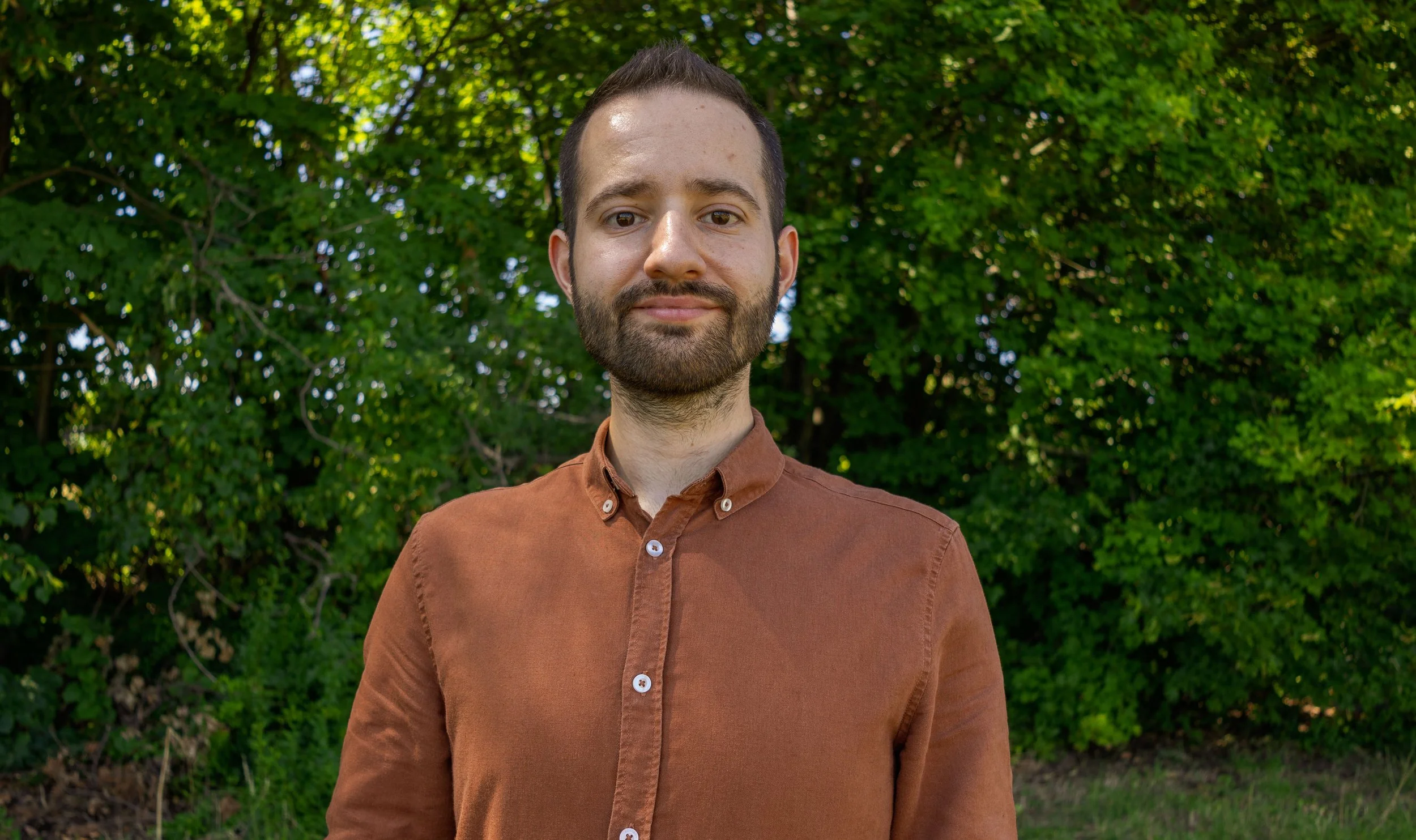
Alexandre Gonzalez
(he/him)
Fulbright Scholar, 2023-2024
Alexandre is currently working on his PhD thesis, the aim of his research is to deciphering the processes of dehydration-induced cell mortality and their relationship to hydraulic failure.
During his stay in our laboratory, his aim will be to study the effect of high temperatures on processes leading to tree cell death, in particular reactive oxygen species. In order to study, predict and model these dynamics, Alexandre will attempt to combine optical, fluorescence and hyperspectral cameras.
Education:
BS in Life and Earth Sciences - Agrosciences, Avignon Université
MS in Plant Biology - Phytoressources and phytosciences, Université Claude Bernard Lyon
PhD student in Plant Biology, Université Clermont Auvergne (in progress)
-

Elisabeth Ilinca
(she/her)
Fulbright Scholar, 2024-2025
Elisabeth is interested in the future of forests in the context of climate change, and in particular intra- and interspecific variability in tree resistance to hotter drought. As part of a Fulbright Scholarship project, she will focus specifically on loblolly pine (Pinus taeda), its intraspecific variability in hotter drought resistance and its phenotypic plasticity. The outcome of this study, and more generally of her PhD, will be to optimise the choice of forest species and/or provenances in order to create forests that can withstand the extreme climates of tomorrow.
Education:
Degree in Agricultural Engineering - Management of Open and Forested Natural Environments
MS in Biodiversity and Ecosystem Functioning
ecophyslab alumni
-
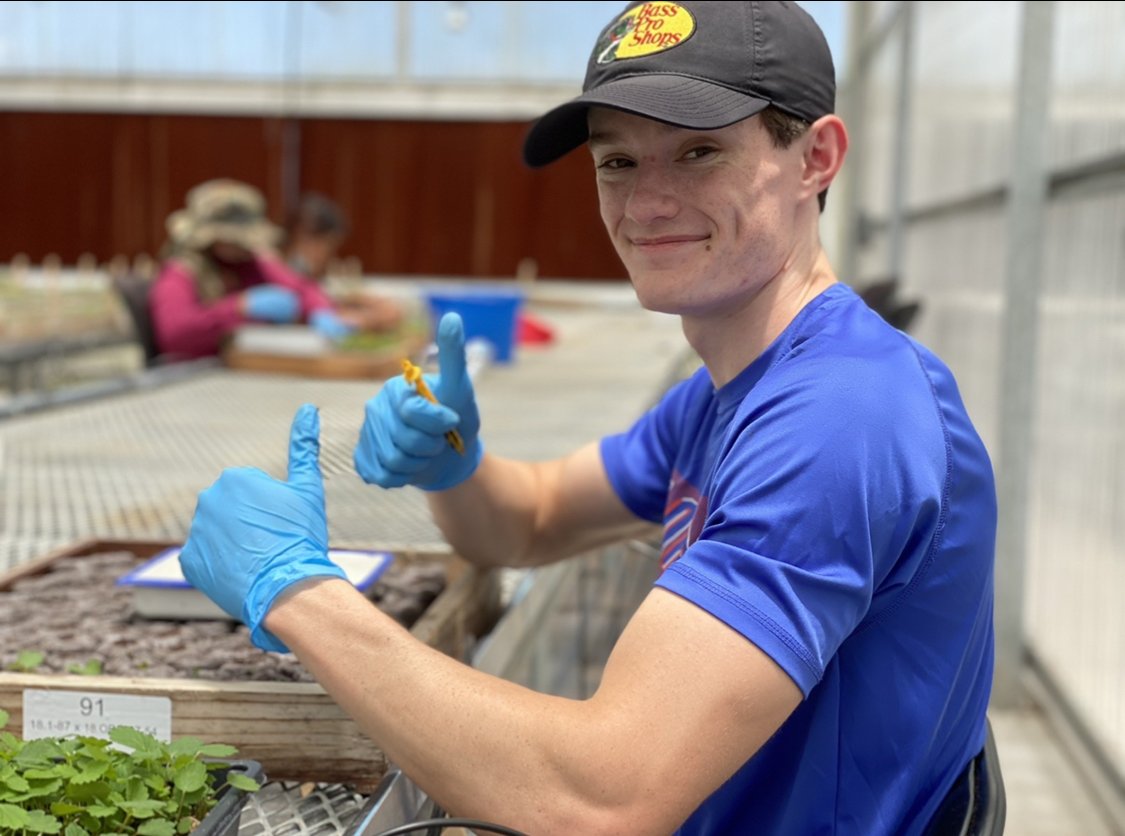
Dylan Clark
(he/him)
Undergraduate Researcher, 2021-2023
-
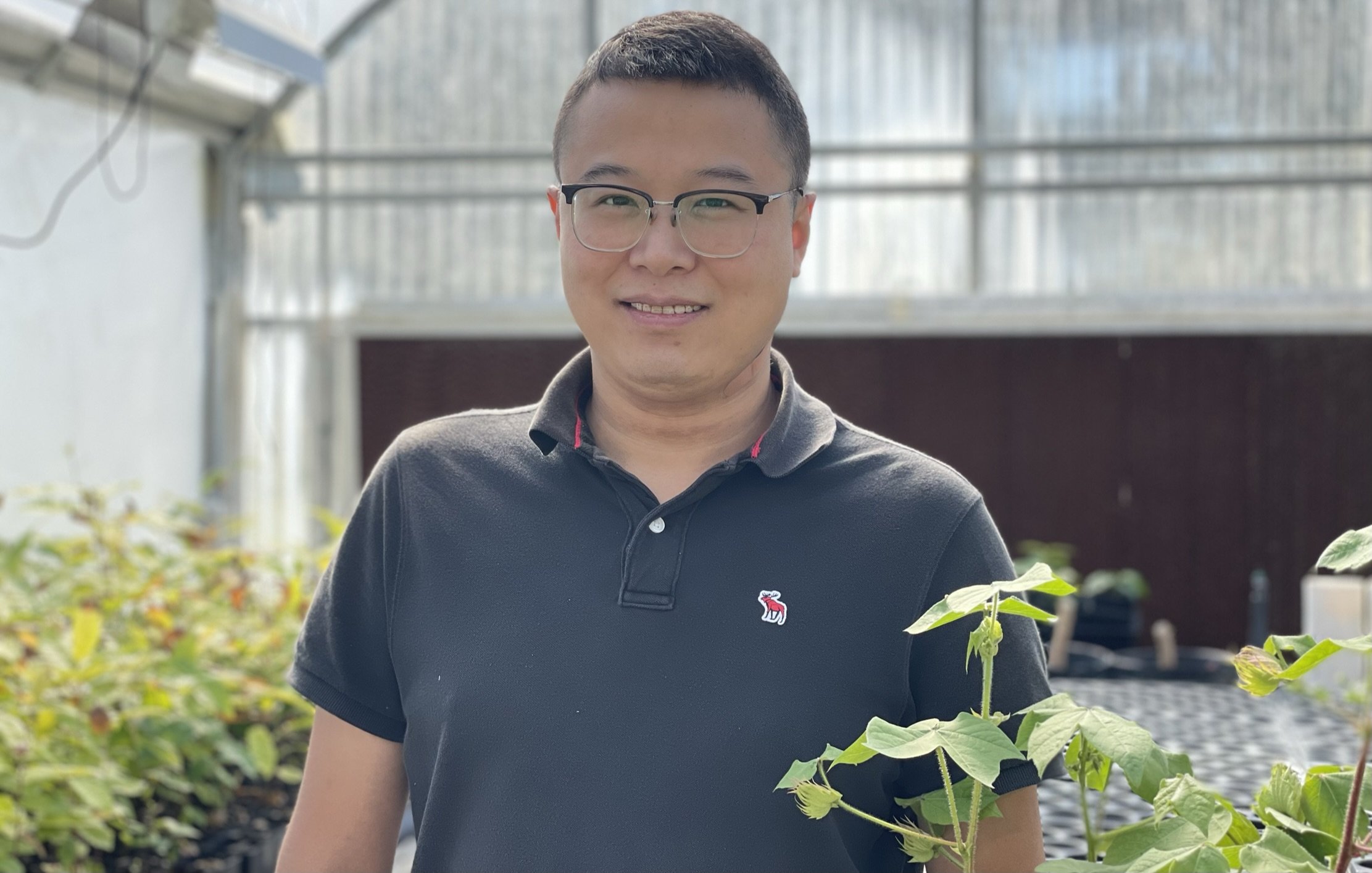
Dr. Yangyang Song
(he/him)
Postdoctoral Research Associate, 2021-2023
-
Bryan Weiksnar
(he/him)
Undergraduate Researcher, 2022
-
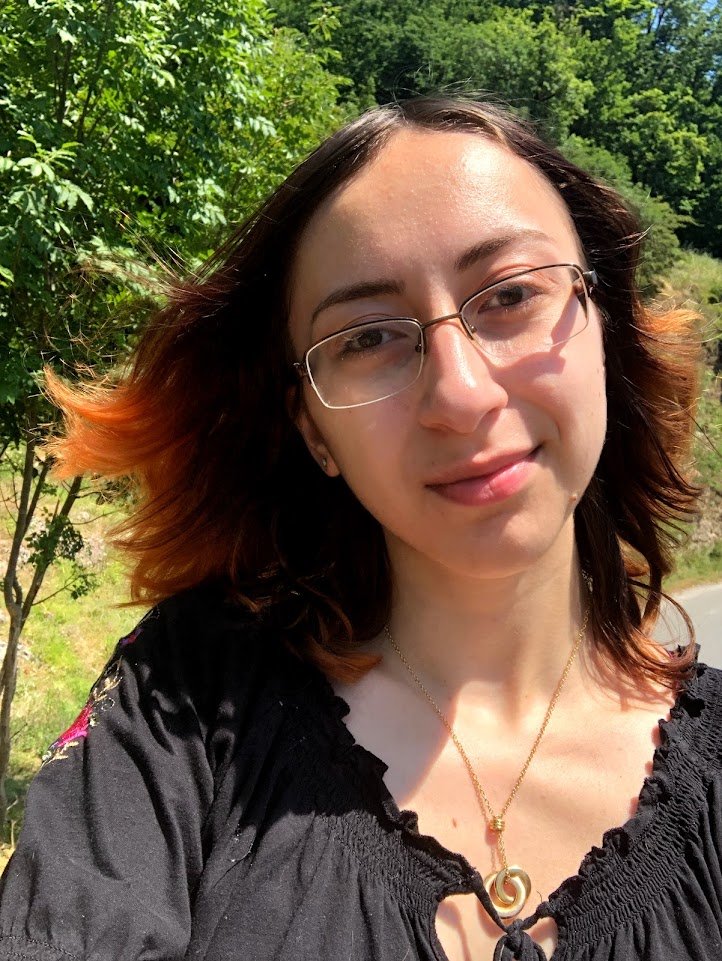
Nicole Mallen
(she/her)
Undergraduate Researcher, 2022-2023
-
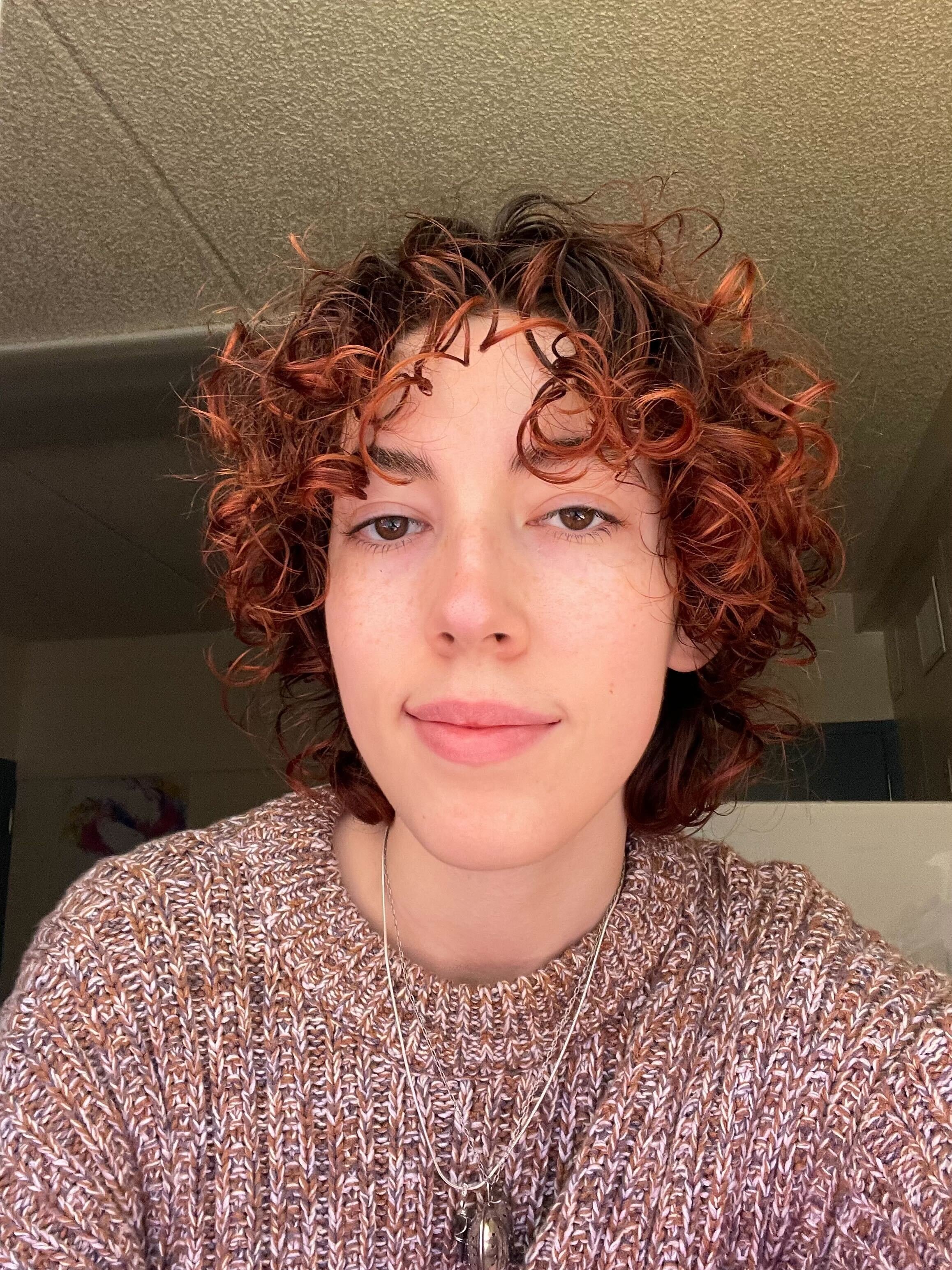
Sofia Gurruchaga
(she/they)
Undergraduate Researcher, 2023
-

Hannah Amaya
(she/her)
Undergraduate Researcher, 2023
-

Eric Torres
(he/him)
Undergraduate Researcher, 2022-2023
-
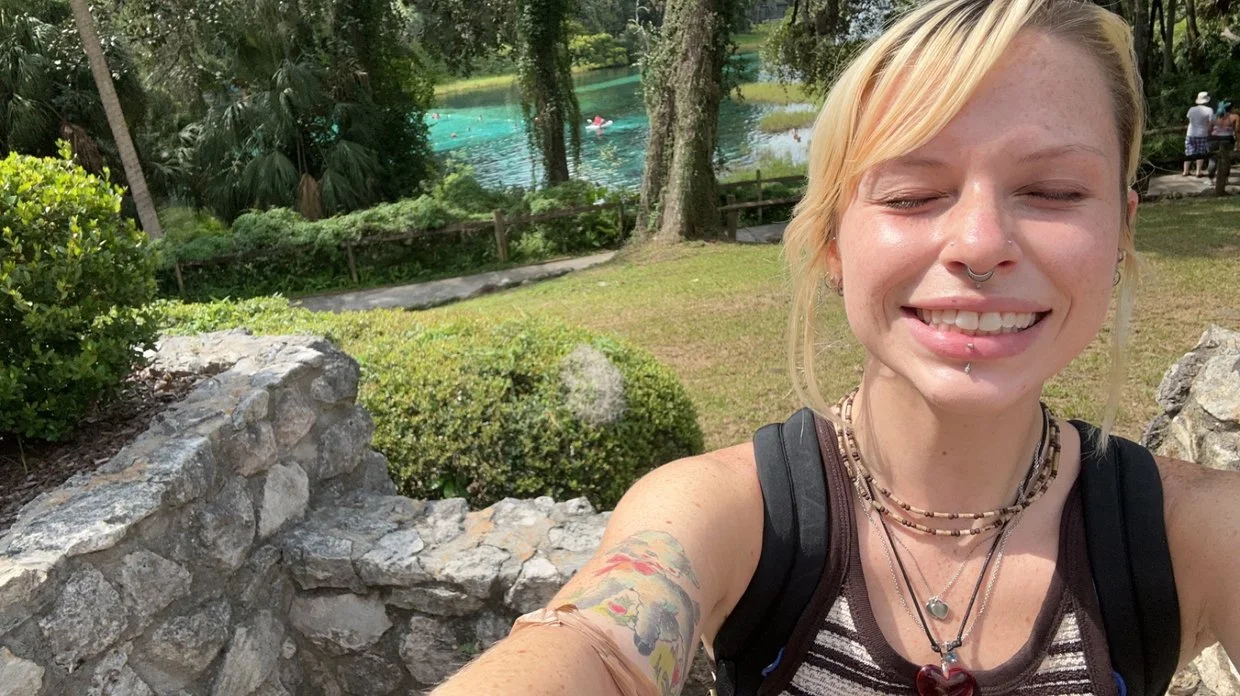
Chaise Brown
(she/they)
Undergraduate Researcher, 2023-2024
-
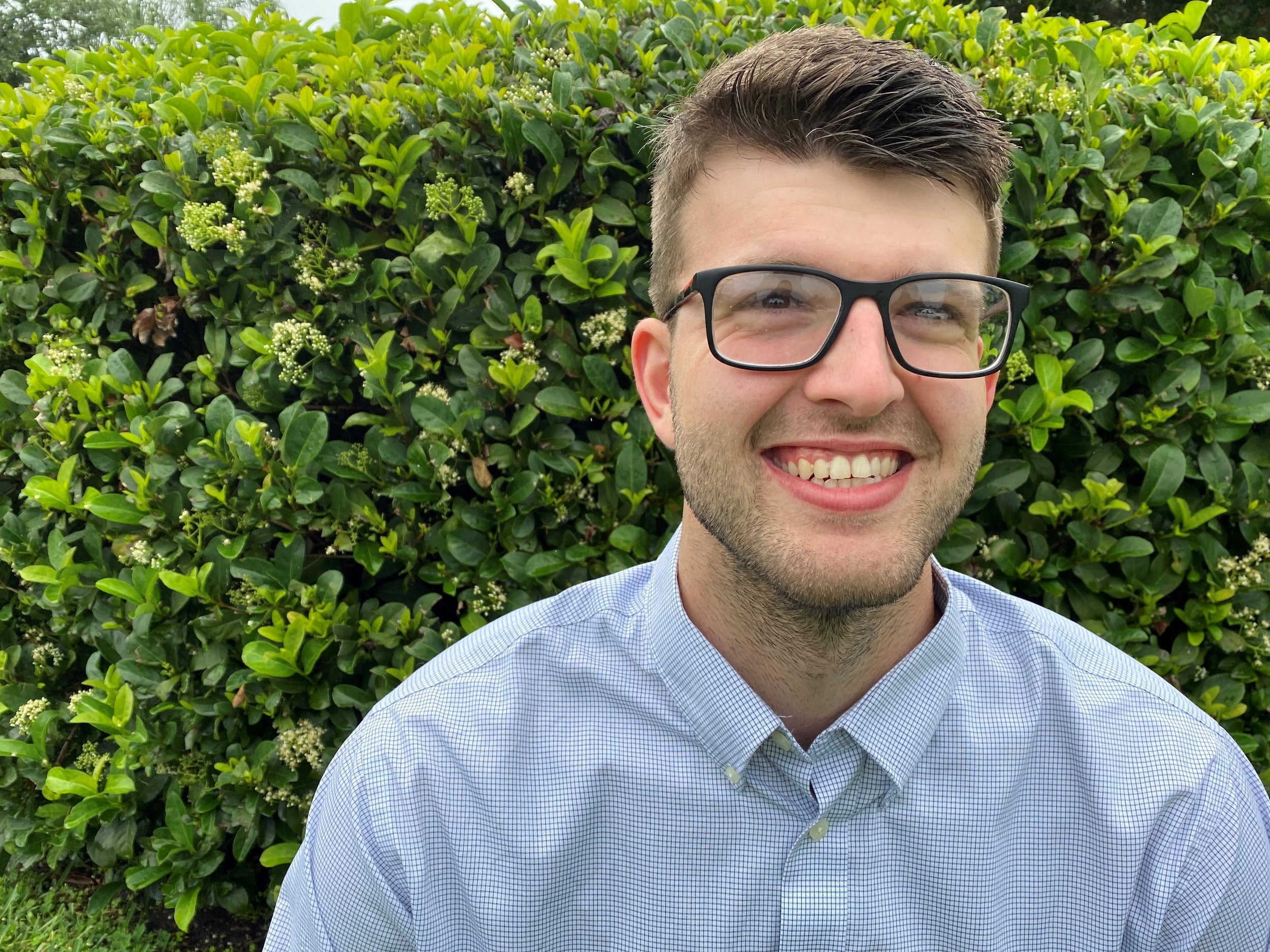
Dr. Justin Pitts
(he/him)
PhD, Interdisciplinary Ecology, 2024
-

Nicole Bill
(she/her)
MSc, Agronomy, 2024
-

Cross Heintzelman
(he/him)
MSc, Agronomy, 2024
-
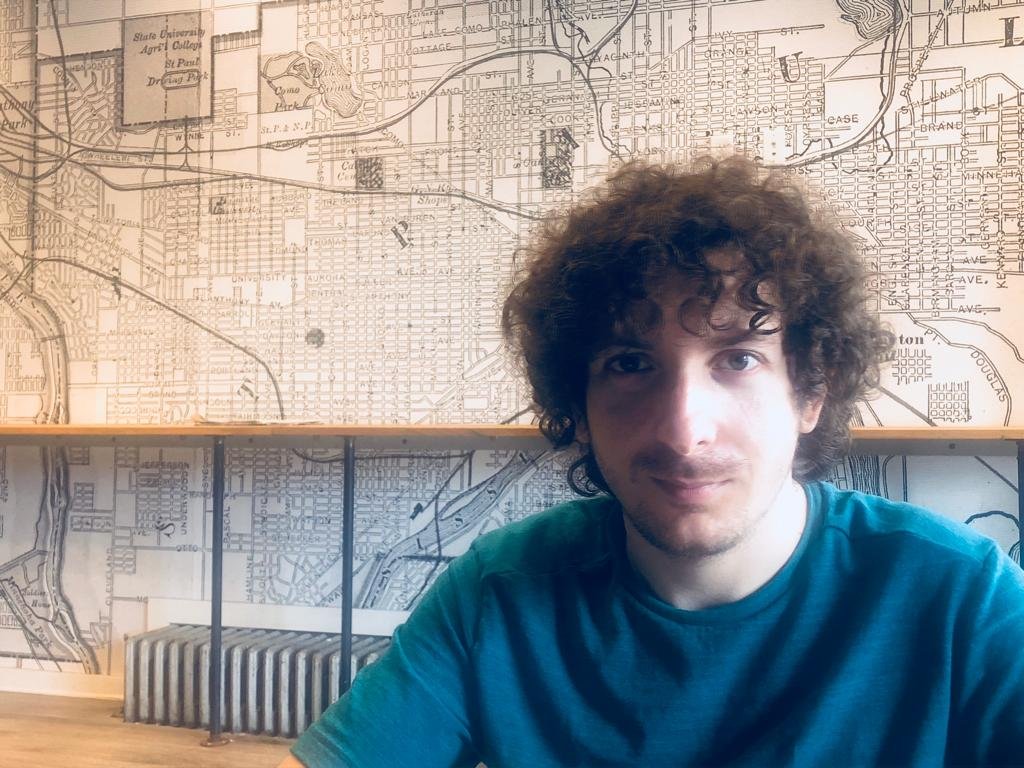
Dr. Gerard Sapés
(he/him)
Postdoctoral Researcher - 2022
Biological Scientist - 2022-2024
-
Dr. Marylou Mantova
(she/her)
Postdoctoral Researcher, 2023-2025
-
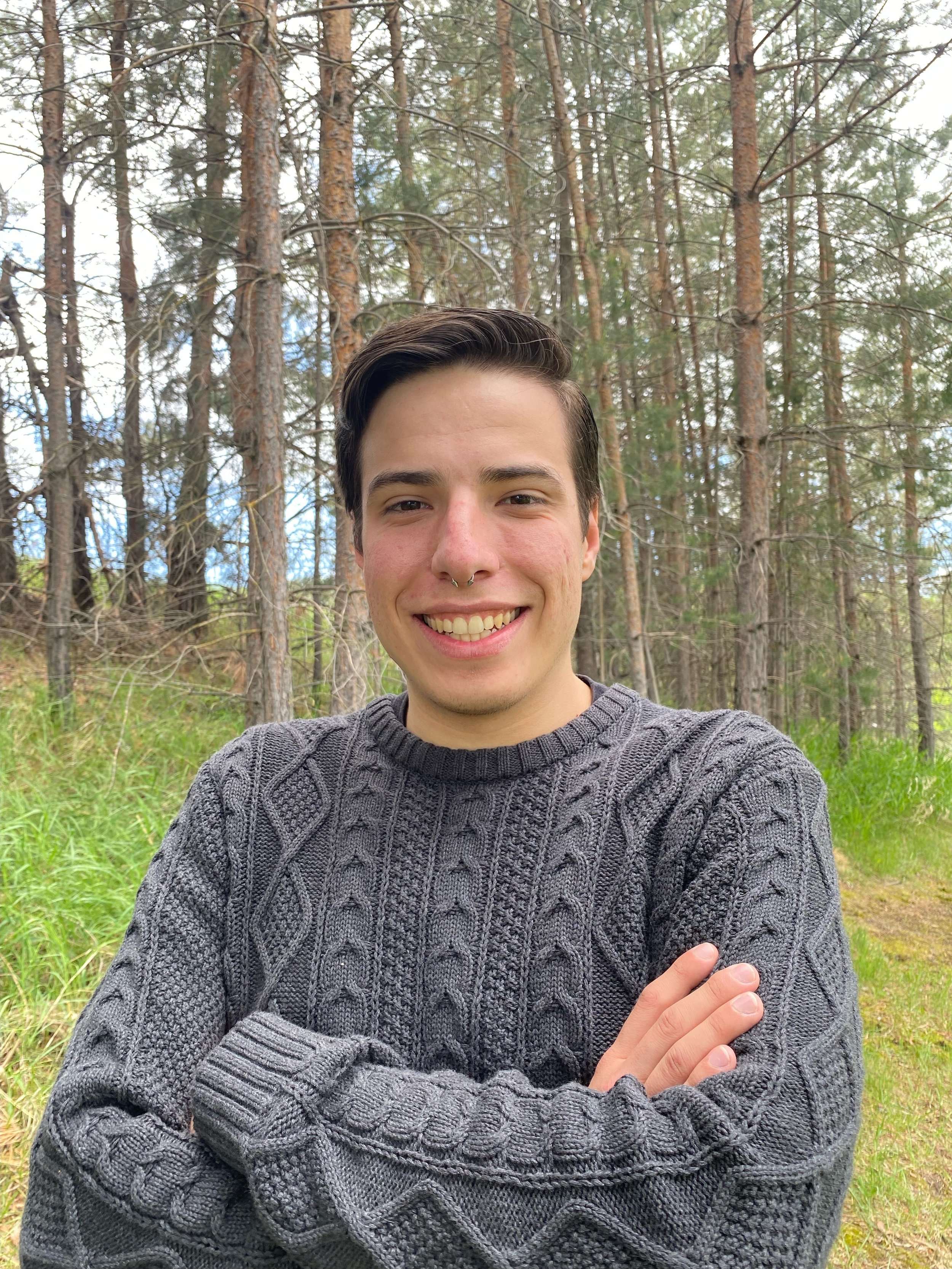
Andrew Cinquini
(he/him)
MSc, Interdisciplinary Ecology, 2025

